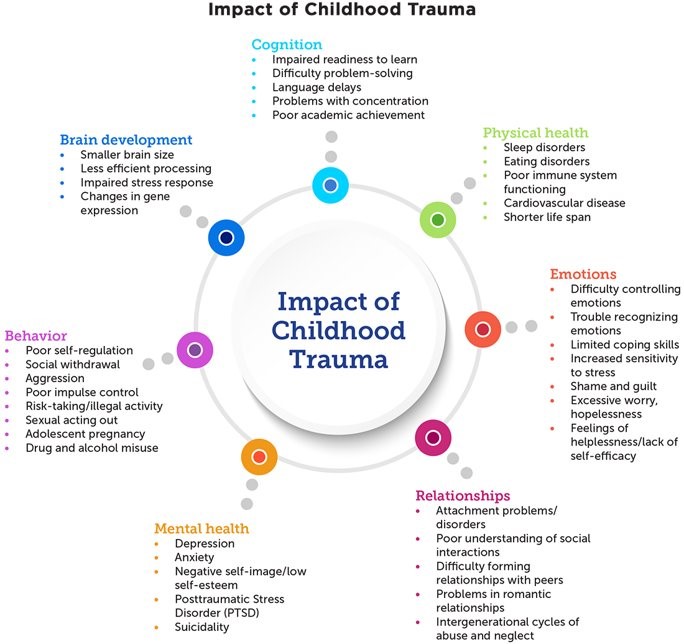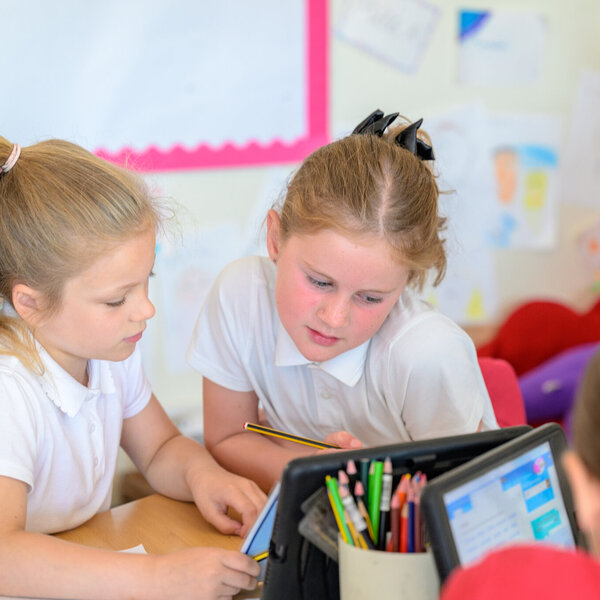What is attachment?
Attachment is an emotional connection that is developed between a parent/caregiver and a child, and this bond is crucial in a child’s development. A strong attachment is called a secure attachment. The secure attachment is not just founded on the quality of care or parental love, but includes the nonverbal emotional communication developed within the relationship. This does not mean that you are required to be a perfect parent. Sometimes we know that these attachments can be disrupted through a range of difficult circumstances, which can lead to attachment difficulties and trauma known as insecure attachments.
What can disrupt attachment and lead to trauma?
Attachments between a child and their main caregiver can be disrupted by many factors:
- Quality of the relationship from birth
- Seperation or divorce
- Illness of child or parent
- Bereavement
- Mental health issues
- Parent being unavailable
- Physical, mental or emotional abuse towards either parent or child
- Learning needs
- Substance abuse
- Parent in jail
How does insecure attachment affect a child?

How do Harrow Gate Primary support children who have experienced attachment and trauma difficulties?
When a pupil or student has experienced relational traumas and losses it is important to know their story, their stress triggers, their resilience factors and their calmers so that we can all provide the consistent care needed, in order for them to recover well. We know that attending to the attachment style of a pupil, makes them feel safe, secure and stable, and this will enable them to engage fully in their learning and embrace the whole school experience.
At Harrow Gate Primary Academy, we have a system to build up a detailed picture of the child’s life from birth to the present through discussion with the parents, staff in school who know the child well, observations of the child and assessments. Through this process, we will be able to identify a range of known tools and strategies that will support both regulation and relationship. The aim is to support the child or young person to function well at home, school and out and about in community.
Interventions and Strategies used to support the children
Team Pupil Approach: include IDP
Theraplay®:
Theraplay® informed practice is an attachment focused way of being aimed at building self-esteem, trust, emotional resilience and strengthening emotional connection.
This can be used with all ages!
It facilitates joyful and playful interactions between caregiver/key adult and child or young person based on four essential dimensions found in healthy caregiver-child relationships: Structure, Engagement, Nurture, Challenge. Through a variety of fun, engaging, developmentally challenging and nurturing games and activities the therapist supports the caregiver to regulate the child or young person’s behaviour and communicate safety, security, warmth and delight. This type of attachment strengthening play and interaction helps the child or young person to feel safe in the world, experience relationships as rewarding and comforting, and come to view themselves as worthy and loveable.
POM:
A number of years ago, Harrow Gate Primary identified the need for an “in-house” targeted provision to support the increasing number of children, who were recognised as having mental health and well-being needs. Through an ever-evolving journey, Harrow Gate now have POM in school (Peace of Mind), led by the Positive Mental Health Officer, Mrs Jackson. This is a provision in school, which supports building resilience and strategies to empower children to recognise and managing their own emotional regulation. Please see the POM website page for more detailed information.
Therapeutic Massage:
School employ a therapeutic masseur for one day a week as there is much research that identifies the connection between touch and improving emotional health and well-being. Massage is an important part of the POM provision and must be done with care in order to keep children safe. Massage is offered in conjunction with the full POM programme to assist with relaxation and reduce tension. It can also be a stand alone weekly intervention used for identified children.
Sensory Attachment Intervention (SAI):
Sensory Attachment Intervention (SAI) is an approach to support children experienced trauma. Traumatic experiences impact on the way we cope with stress throughout life and traumatised children tend to be in a persistent state of fear. This stops them being able to filtering out "unimportant" sensory experiences such as background sights and sounds. It is often the case that children are very defensive to sensory input, as the sensory systems have become alert to the possibility of danger.
School recognise the significant impact this has on the children's ability to cope in the school environment and the wider world. Therefore, both the SENCO and the PMHO have completed the SAI Level 2 training which has given them a more in depth knowledge of sensory attachment intervention and the ways to support and help children manage these difficulties. In order to support children having these overwhelming sensory experiences, the SENCO and PMHO would assess the needs of the child and plan a sensory diet based on their findings. For further information about SAI please go to the SAI website https://www.sensoryattachmentintervention.com/
Calm box:
A Calm Box can be introduce to highlighted children as a way to encourage them to learn ways to cope and to give them strategies to enable them to be the boss of their own emotions. The idea of a Calm Box is that when a child is feeling overwhelming emotions, they are encouraged to take some time and use the tools within the box to self-regulate and calm down effectively.
